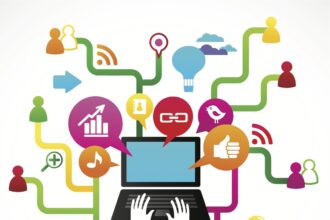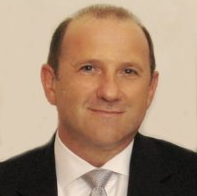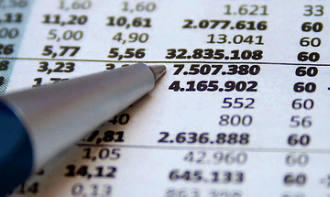The Wild West of mobile health (mHealth) is taking the health care industry by storm, but “there are no rules to the game,” said Joseph C. Kvedar, M.D., founder and director at the Center for Connected Health in a recent interview. Mobile health is a “game changer,” he added, but there is a lot of hype because there are a lot of people developing health apps just to “get rich quick.”
The Wild West of mobile health (mHealth) is taking the health care industry by storm, but “there are no rules to the game,” said Joseph C. Kvedar, M.D., founder and director at the Center for Connected Health in a recent interview. Mobile health is a “game changer,” he added, but there is a lot of hype because there are a lot of people developing health apps just to “get rich quick.”
According to the U.S. Department of Health and Human Services, mHealth is “the use of mobile and wireless devices to improve health outcomes, healthcare services, and health research.” mHealth includes gamification, text messaging, telemedicine/telehealth (remote patient monitoring), electronic health records, and health apps, to name a few.
There’s a lot of enthusiasm surrounding mHealth — from mainstream media tapping into the mHealth rage to social networking sites exploding with discussions about mobility in health care. Take a look at the conversations happening on Twitter and you’ll observe how popular mHealth really is. Follow the hashtags #mHealth, #HealthIT, #HIT100, #apps, #healthapps, #digitalhealth, #hitsm, and #hcsm; and observe the 140 characters of tweets that soar at an accelerated rate through cyberspace. Paul Sonnier’s Linkedin group Digital Health has over 11,000 members to date.
Not only is mHealth soaring through the social networking sites, U.S. revenue in the mHealth market earned $230 million is 2010 and it’s estimated to reach $392 million in 2015, according to a news release by Frost and Sullivan. Globally, Reseach2Guidance reports that the mHealth market will reach $ 1.3 billion this year. Despite mHealth being in its infancy, the revenue projections are significant.
According to a 2011 press release statement from Juniper Research, the number of mobile healthcare and medical app downloads will reach 44 million this year and will reach 142 million globally by 2016.
Consumers are downloading apps to help them stay fit, track their pregnancies, monitor their moods, eat healthier, and sleep better. They are also downloading apps for chronic disease management. They can manage their prescriptions, have medication reminders, and monitor blood pressure and sugar levels. Consumers can be empowered to take charge of their health, but right now navigating the array of health apps can be confusing. Consumers lack guidance on choosing a safe, secure, medically sound health app. Trying to navigate the health app craze without direction can be painstakingly difficult.
Cleveland Clinic, Nike Fuel Band, American Red Cross, and Walgreens are known in the space, and consumers may find it easy to trust them and download apps associated with them. However, consumers may find it confusing to navigate the mHealth app world from companies that are off the radar. How do consumers know if the apps are safe and reliable?
Consumer Safety Is a Priority
The FDA is prudent on drafting guidelines for developers, but will it stifle innovation? “It may slow innovation, but I don’t know that it stifles it. Regulations do create barriers to entry as they set a high bar. But in so doing, they also create significant economic opportunities for those who follow the appropriate processes and win regulatory approval,” said Bill Crounse, M.D., Senior Director of Worldwide Health at Microsoft Corporation, in an email. “I do think thoughtful regulation is required in the health industry to protect consumers. This is certainly true related to pharmaceuticals and medical devices to protect consumers from harm.”
“The primary role of the FDA is to insure consumer safety,” notes Kvedar. “Mobile health has the potential to get out of hand if not regulated. For example, there is an app that based on self input of one’s carbohydrate count; it will generate insulin dosing suggestions. Clearly this could be dangerous,” he added. “While I don’t think the FDA process will ever eventuate in a ‘consumer report-like’ or ‘D Powers-like’ rating, it will be a filter. If apps get through the filter, we should at least be comfortable that they are safe.”
Aside from safety concerns, there are “two problems with health apps,” said Kvedar. First, after downloading the app, it may be used once or twice and then it’s forgotten, he said. “There’s no engagement.” Secondly, health apps can be prone to error because the data that is self-entered by consumers may not be true. It’s a “social diversity bias problem,” he said, because the data entered isn’t honest and there is no meaningful engagement to help change consumers behavior. After downloading health apps with enthusiasm, the “shiny new toy isn’t so shiny anymore,” because there’s “lack of interest and lack of engagement,” said Kvedar.
Health apps need to be engaging and motivating and offer a coaching component.
“There’s a short shelf life, don’t expect it to change your life,” he said.
Happtique, a mobile health application store and total app management solution released a draft of the standards that it will be using to certify medical, health, and fitness apps under Happtique’s App Certification Program. The purpose of the program is to help users identify apps that meet high operability, privacy, and security standards and are based on reliable content.
David Lee Scher, M.D., a former cardiac electrophysiologist who is presently director at DLS Healthcare Consultants and senior medical advisor to Happtique, said in an email interview:
Happtique App Certification Program represents a major step in setting standards for safe and reliable health, fitness, and medical apps. Certification will assure users that the app meets security, usability, privacy, and content standards. Happtique has curated and categorized over 12,000 apps to date in over 300 categories.
Mobile technology has allowed consumers to receive information at lightning speed and gives consumers health and wellness apps that can help improve their health care. Mobile technology may help to transform the lives of patients and provide a stronger partnership with health care providers.
Bottom Line
Consumers need safe, reliable, trustworthy apps to help guide their health and wellness and help them manage their chronic diseases.
The health app world needs guidance. The vast assortment of apps to choose from makes it difficult for consumers to navigate. Which apps are reliable, trustworthy, and medically sound?
Joseph Kvedar, M.D., Justin Major and Carol Colman are actively involved in writing a series of books for consumers titled Wellocracy; it’s the first in a series of books to help consumers navigate the ever-growing and dizzying array of health apps.
So, how do consumers navigate the crowded world of health apps? “Common sense rules,” he said. If consumers think it’s a “magic app,” it probably isn’t.
In this exciting world of health care where technology rules, one thing is for sure, technology will never replace the doctor/patient relationship (or health provider/patient relationship). Face-to-face communication with health care providers will always be paramount.
It doesn’t seem as if there is too much hype — just little guidance. The push to move the mHealth app world forward may be in the power of consumers to clamor for health and wellness apps that are safe, reliable and trustworthy, developed by companies who are not just those looking to “get rich quick,” as Kvedar said.
Your Turn
We would love for you to share your thoughts in the comment section below. Do you download health apps? Do you feel guidance is needed to help navigate the enormous amount of health apps? What health apps do you use? As always, thank you for sharing your thoughts and for your valuable time.







